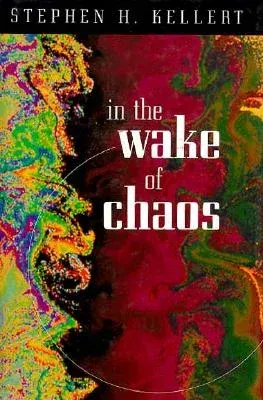We are in the wake of chaos - trying to make sense of the news that the
universe is a far more unpredictable place than anyone ever imagined.
What began with the discovery of randomness in simple physical systems -
a curl of smoke, a tumble of water - has exploded into a fascination
with "chaotic" models of everything from brainwaves to business cycles.
Why has chaos captured so much attention? What does it do to our basic
beliefs about knowledge, meaning, and our place in a suddenly turbulent
world? In this provocative book, Stephen Kellert takes the first
sustained look at the broad intellectual implications of chaos. Like
quantum mechanics and relativity before it, chaos has an irresistible
appeal as a radical new vision of reality. But how solid are its claims?
Has chaos been oversold? How far can the science of chaos take us? These
are just some of the intriguing questions Kellert sets out to answer.
Kellert describes the challenge of chaos to traditional science - from
its power to thwart the search for universal laws to its unsettling
effect on such essential concepts as fact and event, cause and control.
And he paints a suggestive portrait of what knowledge - with science as
its source - might have to be in order to account for the profoundly
counterintuitive findings of chaos. This is also the story of the coming
of age of a new science. Chaotic phenomena have been observed for ages,
but only recently have scientists begun to study chaos systematically.
Kellert points to the deep biases for order and control that have kept
the study of chaos in the background. In today's culture, however, chaos
flourishes as a powerful organizing principle for those seeking to
expand theboundaries of the knowable and redefine what we mean by
legitimate knowledge itself. Revealing glimpses of beauty and diversity
in the most routine phenomena, of order within apparent disorder, chaos
is neither the new toy of media-savvy scientists and their followers nor
the mystical

